Humans

Educators and Parents, Sign Up for The Cheat Sheet
Weekly updates to help you use Science News Explores in the learning environment
Thank you for signing up!
There was a problem signing you up.
-
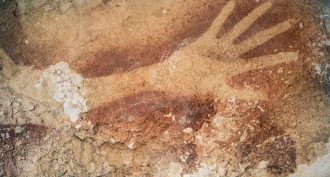 Humans
HumansStone Age stencils: Really old art
Scientists thought that cave art started in Europe. New analyses now dash that assessment. Stencils in an Indonesian cave are every bit as old as the better-known drawings in caves in France and Spain.
-
 Health & Medicine
Health & MedicinePills of frozen poop fight killer disease
Popping poop pills? Of course it sounds yucky. But researchers find it might just be one of the most effective ways to knock out a very serious — and tough-to-kill — intestinal disease.
By Janet Raloff -
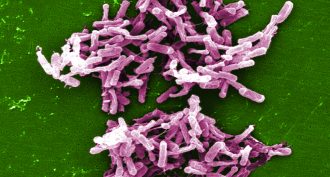 Microbes
MicrobesExplainer: What is C. difficile?
Over the past two decades, these severe bacterial infections have evolved from a no-big-deal occurrence to a common, life-threatening problem.
By Janet Raloff -
 Health & Medicine
Health & MedicineStrong body helps the mind
Study finds new link between the body and brain in mice and may help explain how exercise heals.
-
 Health & Medicine
Health & MedicineExercise builds brawn — and brains
One 20-minute session of leg exercises improved memory recall by about 10 percent.
-
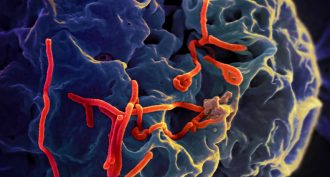 Health & Medicine
Health & MedicineNews Brief: First cases of Ebola acquired outside Africa
Health workers who had worn extensive protective gear still became infected with Ebola while treating patients in Spain and the United States.
By Janet Raloff -
 Brain
BrainThe distracted teenage brain
Teens often show poor judgment in decision-making. Scientists have long blamed this on the fact that their brains are still developing. A new study offers another explanation: distractions form rewarding behaviors — ones that persist even after the reward itself has disappeared.
-
 Health & Medicine
Health & MedicineArtificial sweeteners may evict good gut microbes
People use saccharin and other artificial sweeteners to try to stay healthy. A study now suggests such sweeteners might actually cause harm by encouraging the wrong bacteria to grow in our guts.
-
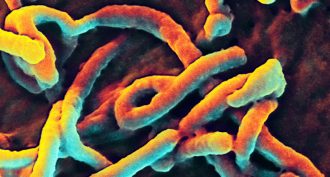 Health & Medicine
Health & MedicineNews Brief: U.S. gets its first Ebola case
Although U.S. hospitals have treated a handful of American health-care workers who had become exposed to Ebola in Africa, the first case of a sick traveller has emerged. His Ebola infection showed no symptoms until several days after he reached Texas. (Update: On October 8, the man died.)
By Nathan Seppa -
 Archaeology
ArchaeologyPyramids’ blocks: Possibly rock ‘n’ rolled
No one knows how the ancient Egyptians moved the big stones needed to build their pyramids. A new study suggests they could have rolled them, by attaching wooden posts to the sides.
-
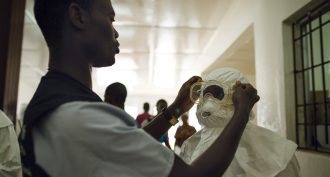 Health & Medicine
Health & MedicineEbola epidemic could top 1 million, CDC warns
The deadly Ebola epidemic ravaging West Africa has now infected more people than in all previous outbreaks put together. And still the numbers of the sick and dying continue to grow, not shrink.
By Janet Raloff -
 Brain
BrainEating disorders: The brain’s foul trickery
Experts on eating disorders are probing why sometimes deadly chemical changes can distort how much the brain says we need to eat.